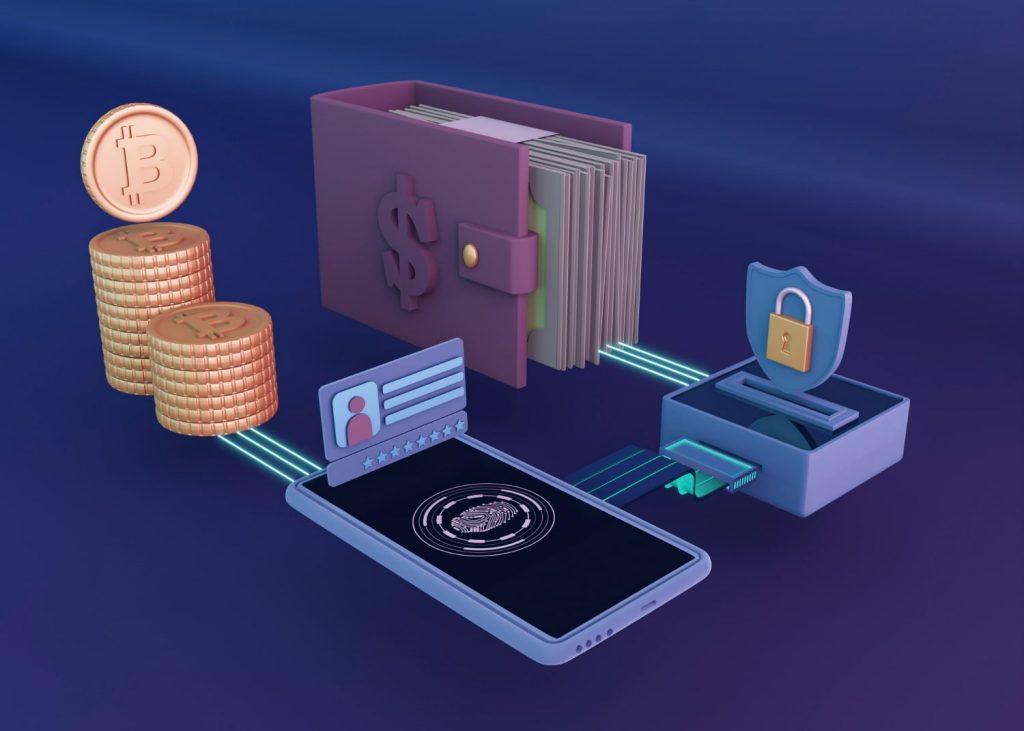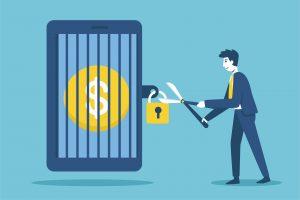As cryptocurrencies increasingly become an asset class, people are also wondering how to store them and what keeps them safe, even ‘do I need a wallet for crypto?’ Here comes the role of crypto wallets. They keep your private keys-login credentials and passwords, allowing access to your cryptocurrencies.
Your keys enable transactions and prove your ownership of the digital currency. That’s why it’s essential to know where to keep your crypto. Here is a complete guide for you to know about setting up cryptocurrency wallets and how to decide on the best crypto wallet for you.
What to consider when choosing a wallet?
Before considering how do I buy a crypto wallet, you should determine which type of wallet you need, depending on your objectives for investing in cryptocurrencies. But not all of these wallets might meet your expectations. As a result, you need to pick your wallet companies carefully. Key features you should consider while choosing a crypto wallet are:
- Cold vs. Hot: A hardware wallet (cold wallet) offers a decentralized method of accessing cryptocurrencies. It is a sensible option for people who are particularly risk-averse and concerned that internet service, desktop, or mobile apps could get hacked. A drawback of crypto wallet hardware is that it’s not always on or as readily available as online services, which makes it a little trickier to utilize. Reputable exchanges retain most of their customer’s cash offline in a network of cold wallets and then reserve a certain amount in hot wallets for withdrawals. But, a benefit to the hot wallet is easy accessibility.
- Security features: Since all transactions happen online, there is a high risk of your wallet getting hacked. An excellent cryptocurrency wallet should ideally have two-factor authentication to guarantee that only you can access the wallet. Look for wallets that support URL addresses with “HTTPS” beforehand or Pin login. Essential security features like biometric authentication, multi-signature support, and optimal course logout should also be included.
- Reputation: For your wallet, choose a trustworthy and reliable company. You should know the team of experts running the company, whether they store data on a third-party server or on their server, the data management practices followed by the company, and the efficiency of solving client’s problems.
- User experience and Backup features: A proper backup mechanism is a much-needed feature to remember when choosing your storage options. It will ensure the rescue of your private keys in case of theft or default. You can use a seed phrase (mnemonic phrases usually between 12, 18, and 24) and export your keys to a virtual device or location. The master key can also be copied to a text file and stored on a different device before you back up the crypto wallet for mining files.
- Platform compatibility: You must ensure that the cryptocurrency wallet you choose is compatible with various hardware. Consider choosing white-label bitcoin wallet software compatible with iOS, Android, Windows, and Linux. Since different users have different operating systems, your wallet solution should be able to handle the broadest possible user base, giving your device an advantage in terms of versatility.
- Multiple cryptocurrencies: Since many cryptocurrency traders now invest in multiple cryptocurrencies, they search for a single wallet to house all of their digital assets. It is advised to create a multi-cryptocurrency wallet for the same. The Atomic wallet, for instance, supports BTC, ETH, XRP, Litecoin, XLM, and over 300 other tokens and coins.
Choosing the right wallet
There are currently around 17,000 cryptocurrencies, and it’s challenging to know what is the best wallet for crypto. Make some choices even though there aren’t quite as many wallet options for holding your cryptocurrency. Your entire experience with your crypto wallet will be significantly influenced by the above factors and your investing objectives. Following are some of the wallet options you can choose from:
- Trust wallet: Trustwallet is a decentralized and open-source cryptocurrency wallet that supports over 53 blockchains and 1M+ crypto assets and is available for Android and IOS. Supported assets and blockchains include BTH, ETH, Binance Coin (BNB), Ripple (XRP), Fantom (FTM), and many more. One can stake coins in Trustwallet to earn up to 84% APY.
- Robinhood Crypto wallet: Instead of trading cryptocurrencies, as is now permitted, the Robinhood crypto wallet enables Robinhood customers to directly possess and transfer Bitcoin and other cryptocurrencies to pay for goods and services. To enable customers to receive supported coins, Robinhood crypto wallet provides crypto wallets on the Robinhood markets. Holders of Robinhood accounts can load their cryptocurrency wallets with a reasonable investing budget to send and receive virtual currency.
- Coinbase Wallet: The web-based hot wallet software “wallet coinbase” gives you complete control over your cryptocurrency, digital artwork, and other assets by allowing you to store them safely and securely on your device. Wallet coinbase supports over 215 cryptocurrencies.
- Exodus Wallet: A hot software wallet works with Trezor Model T and Trezor One. Any cryptocurrency lover should use the Exodus wallet, especially those just starting their cryptocurrency journey. It supports over 235 different cryptocurrencies. Exodus wallet has a P2P crypto-to-crypto trades option and a buy crypto in-app option.
How to set up a hardware wallet?
Hardware wallets are offline storage devices. Since the hardware wallet works offline, potential hackers will never get the private keys. It is one of the safest strategies to guard your cryptocurrency investments. Hardware wallets have different models, with the Ledger Nano X being the most popular. Follow the steps to set up a hardware wallet:
- Buy a hardware wallet from a trustworthy seller: Ensure to buy your crypto hardware wallet from a verified manufacturer to avoid cyber crimes like hacking and phishing.
- Setup lives ledger on the device: Ledger has developed specialized software that will assist you in configuring your device and managing your assets. Once you have your ledger, connect the USB cord to your PC and gadget.
- Choose a PIN: Ensure that your PIN code is memorable. Don’t forget to record your password and recovery phrase in multiple offline places and store them safely. Confirm your password and recovery phrase. Download the Ledger apps to your PC to use your device and access your wallet.
- Create a crypto wallet on a ledger device: Go to the manage section and choose the crypto you want to store.
Mobile Wallet Set Up
In crypto, mobile wallets are mobile-based apps that store private keys. Back up your private keys on paper during the setup procedure. This backup is a passphrase of 12 or 24 letters. Even though not all cryptocurrency wallets demand this action, it is strongly advised to take it since, if you don’t, you risk losing access to your money if you misplace your phone or it suddenly stops working correctly. Many of these wallets sync with other crypto wallet hardware.
Pros of mobile wallets include user-friendliness, speedy transaction, and easy accessibility. Steps to use mobile wallets:
- Install the application from the Playstore.
- Click on the prompt steps of the app to set up.
- Make sure it supports two-factor authentication and seed phrase storage options.
- After completing the steps mentioned above, fund your wallet and allow transactions.
Desktop Wallet Set Up
Desktop wallets are computerized programs that keep your private key secure. Some desktop wallets support storing your private keys on a crypto hardware wallet and do not require a third party. By configuration, desktop wallets are more secure than mobile wallets and less secure than offline or hardware wallets. To setup the desktop wallet, follow the given steps:
- Set up an account to use a desktop wallet, like the ones offered by crypto exchanges. Then complete KYC and Anti Money Laundering (AML) processes. Confirm a password and activate 2-step verification.
- Install the application. If you select to use a non-custodial wallet, the app may not ask for KYC and AML verification. You’ll only require providing an email and a password.
- Record recovery phrases.
- Fund your wallet using a debit or credit card so that you can buy crypto and allow transactions.
How much will it Cost to Set Up a Wallet for NFT?

Before investing in any top-notch NFTs, you should confirm that the market has the precise NFT you’re interested in. Usually, you use cryptocurrencies to pay for your online NFT purchase. NFT marketplaces typically take payments via a wallet link. But how much does a crypto wallet cost, or what are the charges for creating a crypto wallet for NFT?
The price of NFTs is affected by many variables, including the price of the blockchain wallet, gas fees, marketplace account fees, listing fees, etc. The price generally ranges from about $0.05 to $150.The cost to open an account varies between $70 and $120 for popular NFT wallets. However, free crypto wallet platforms like ZenGo, Binance, Enjin, and many more are available. Below are some critical NFT wallet specs to narrow your search path.
- Crypto.com: Users can view the best collectibles on the market with the NFT spotlight on the device.
Fee charged: 0
Price: Free
Security: Cold storage and two-step authentication.
Blockchain used: crypto.org.
- Metamask: Provides prompt customer service responses in the conversation.
Fee charged: 0.875%
Price: Free
Security:Encryption
Blockchain: Ethereum
- Math wallet: Math wallet has several private wallets and cloud access.
Fee charged: 0.0005 BTC
Price: $0.117332 USD
Security: private keys, 2-step verification, speed phrases.
Blockchain: 60+ blockchains
- Trust wallet: Allows buying NFTs using a credit card.
Fee charged: 5%
Price: Free
Security: 2-step verification, private keys.
Blockchain: BSC Ethereum
Please note that the above range of costs may vary.
Tips for Keeping Your Crypto Wallet Safe
You may wonder what is the safest crypto wallet or how to keep these wallets safe. And so, the below-mentioned points can help you.
- Use cold wallets instead of hot wallets: Setting up a cold wallet requires some technical skill, but they are safer than hot wallets because cold wallets cannot get hacked.
- Use a password manager and change your password frequently.
- Avoid using public WiFi to access online crypto accounts. Use VPN to maintain your privacy.
- Use 2-factor authentication: Your account gets an additional layer of security with 2FA. You get a message or email with a verification code whenever someone tries to log in. By adding this step, hackers will find it more difficult to access your account.
- Store your recovery or backup phrases in a secure place.
- Try to diversify your investment outlook and invest in multiple wallets.
- Double-check the recipient’s wallet address before sending cryptocurrency.
- Use the updated and licensed version of the antivirus software.
Conclusion
A Crypto wallet is necessary for trading and storing cryptocurrencies. And knowing how to set up a crypto wallet or blockchain wallet to store all of your cryptocurrencies is essential if you wish to keep a variety of cryptocurrencies. It is possible through a mobile application, desktop software, or physical storage device. The type of crypto wallet best suited for you depends on your investment plans.
After reading this post, you will have a better understanding of selecting and setting up a cryptocurrency wallet. Make sure you choose the best crypto wallet before using any that have been highly recommended online.






